
It seems like nowadays celebrities get covered in the media from a “business” perspective almost as much as they get talked about for their actual creative work or sports accomplishments. America is a country that values and admires success at the highest levels. We are fascinated by people who can perform at a world-class level in the most competitive human endeavors—and there are lots of crossovers between the worlds of sports, music, and pop culture and the world of business.
Many of the most successful entertainers and athletes are known for managing their careers as if they were CEOs of a corporation. This phenomenon has brought to the forefront a unique perspective on leadership and business acumen, demonstrating that the principles of high performance transcend traditional industry boundaries. Their journeys, challenges, and successes offer a rich tapestry of insights for anyone aiming to excel.
Indeed, many of these celebrity CEOs can offer valuable business management lessons—no matter what business or industry you’re in. By studying their approaches, we can glean practical strategies and mindsets that foster innovation, resilience, and sustained growth. Let us delve into the wisdom we can glean from these industry titans and how their experiences can shape our path to success.

1. **Stick to Your Core Strategies & Value Investing**
Bill Belichick, the head coach of the New England Patriots, stands as a prime example of strategic steadfastness. Arguably the most successful football coach of all time, Belichick has secured a record six Super Bowls not just through savvy game management, but by intelligent off-season personnel decisions. He expertly manages the team’s roster and navigates the complexities of player contracts within the league’s salary cap limitations.
Belichick’s genius as a “football CEO” shines in his approach to player investment. He operates as a “football ‘value investor,’ similar to Warren Buffett: he buys low and sells high.” The Patriots consistently refresh their talent pool with low-priced young players, while being famously reluctant to overpay for high-priced free agents. This disciplined approach means he would “rather release or trade a player one year too soon than one year too late,” ensuring he always keeps options open by finding overlooked, underpriced talent.
For any business leader, this translates into a powerful directive: stick to your guns on your business strategies. It means resisting the temptation to “overpay” for fleeting fads or star talent that doesn’t fit your long-term value proposition. Instead, identify a method that consistently works for your organization and commit to it resolutely, even if it means making unpopular decisions or going against the grain of popular opinion.
Belichick’s success, achieved by “resolutely keep[ing] doing things his way—no matter what the rest of the league thinks,” underlines the importance of conviction. While some might grumble about “the Patriots Way,” its undeniable success proves that a firm, consistent strategy, focused on value and long-term sustainability, can yield unparalleled results. This lesson encourages entrepreneurs to define their unique path and maintain the discipline to follow it.
Read more about: Dealership Dirt Uncovered: 15 Sneaky Car Sales Tactics Every Buyer Needs to Master

2. **Leverage Your Influence & Prioritize Your Path**
LeBron James, widely considered one of the greatest basketball players in history, offers a distinct lesson in leveraging influence and prioritizing personal and professional trajectories. Unlike some transcendent athletes known for their ruthless competitiveness, LeBron operates more like a “movie director or ballet choreographer.” He strategically uses his power as a superstar to assemble the right talent around him, even collaborating with close friends, demonstrating a sophisticated understanding of team dynamics and personal branding.
This approach provides a clear takeaway for business leaders: when you have leverage, use it judiciously. LeBron’s ability to influence player personnel decisions or even coaching hires with the teams he plays for showcases how top performers can shape their environments. His strategic moves to new teams—Miami, Cleveland, Los Angeles—were always driven by what he felt would be “more advantageous for him and for the people he cares about.” He acts less as a long-term employee and more like an entrepreneur, constantly optimizing his position.
LeBron’s career trajectory underscores a vital business lesson: “Don’t get bogged down with misguided short-term loyalty.” Instead, entrepreneurs and leaders should be prepared to make strategic moves and assemble new teams whenever necessary to align with their evolving goals and maximize their potential. This perspective encourages a proactive, entrepreneurial mindset, where one’s career and business are seen as dynamic entities requiring continuous strategic adjustment.
This isn’t about disloyalty; it’s about strategic self-advocacy and ensuring optimal alignment for sustained success. Understanding when to pivot, when to re-evaluate alliances, and when to proactively reshape your team or business environment can be the difference between stagnation and groundbreaking achievement. LeBron’s journey vividly illustrates the power of strategically managing one’s career as a valuable asset, always seeking the most advantageous position.
Read more about: Solar’s Ascent: How Innovation and Accessibility Are Powering a New Era of Affordable Energy

3. **Embrace Calculated Risks & Experimentation**
Steven Spielberg, a master storyteller responsible for some of American history’s most beloved mainstream movies, provides a compelling lesson on the importance of embracing calculated risks. While he excels at playing to the biggest possible audience, he is also not afraid to “take big risks,” having directed critically acclaimed, yet often violent or gory, films such as *Saving Private Ryan* and *Schindler’s List*. This duality highlights a crucial business principle.
His career demonstrates that just because a business or individual is known for a particular type of work or product, it doesn’t mean they must remain in that niche indefinitely. The market often rewards experimentation and creativity, especially for businesses that aren’t afraid to have “a point of view about social and cultural issues.” This willingness to venture beyond established boundaries can unlock new opportunities and foster significant growth.
The core message for entrepreneurs is clear: keep taking chances. “You don’t have to play it safe—sometimes playing it safe is the riskiest thing you can do.” Sticking rigidly to past successes can lead to stagnation in a rapidly evolving market. Spielberg’s ability to pivot between crowd-pleasing blockbusters and challenging, impactful dramas illustrates the strategic advantage of calculated risk-taking, keeping his creative and commercial endeavors fresh and relevant.
Embracing experimentation means fostering an environment where trying new things, even if they deviate from the norm, is encouraged. This approach allows a business to explore new markets, develop innovative products, and maintain a dynamic edge. Spielberg’s legacy is a testament to the idea that true artistic and commercial longevity often comes from a willingness to push boundaries and evolve, demonstrating courage in creative and strategic choices.
Read more about: Mastering the Marathon Menu: 14 Common Diet Mistakes Elite Runners Absolutely Avoid

4. **Continuously Push Boundaries & Reinvent**
Jay-Z and Dr. Dre represent a generation of hip-hop artists who have successfully transitioned into formidable business moguls, demonstrating a powerful lesson in continuously pushing boundaries. They are now almost “better known for their business acumen than for their music,” illustrating how artists can transcend their original subculture and branch out into entirely new markets and business endeavors. This isn’t a criticism but rather a testament to their entrepreneurial drive.
Their success conveys an inspiring message: keep pushing the boundaries of what you can do. It’s a call to action for leaders not to assume it’s “too late for you to get into some new field of work, to try something different, or launch a new product or service.” Their careers show that determination and hustle can be among an entrepreneur’s most valuable assets, proving that success in one field can often be replicated, or even surpassed, in others.
Mystifying the art of reinvention, Madonna is celebrated for constantly “pushing the envelope, trying on different styles of music and fashion throughout her career.” Often criticized and sometimes controversial, she has consistently commanded attention and respect for her artistic choices, cultivating a passionate following. Her journey underscores that continuous reinvention is not just about adapting, but about proactively shaping one’s brand and offerings.
For businesses, Madonna’s career teaches that sometimes it’s “better to be controversial than bland; it’s better to be polarizing than forgettable.” Not every product or brand will appeal to everyone, and some might even generate strong opposing views. However, if a business remains true to its instincts and consistently delivers something cherished by its passionate fans, it can build a sustainable and enduring enterprise, defined by its distinctiveness and willingness to evolve.
Read more about: From Underdog to Icon: 12 Small Snack Brands That Absolutely Crushed It Globally
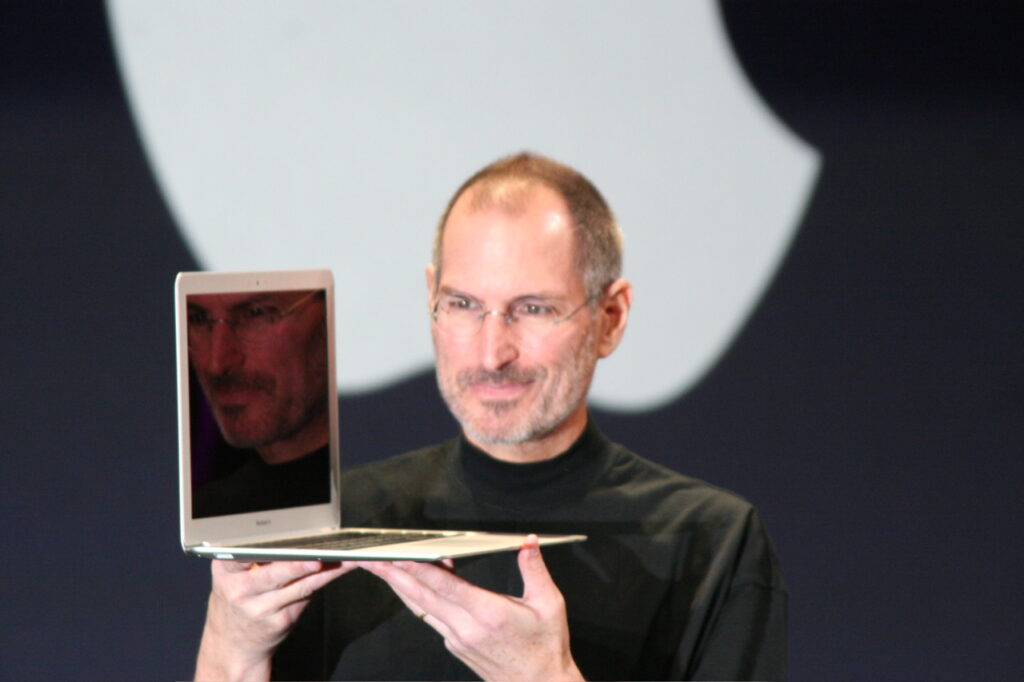
5. **Be a Trained Listener**
The skill of active listening stands as a cornerstone of effective leadership, a quality vividly demonstrated by historical figures like Steve Jobs. It transcends merely hearing words; it demands an “active and deliberative process of understanding what other people say with different ideas from yours and truly comprehending their feedback.” Jobs himself notably “encouraged feedback that was incorporated into Apple’s product development, giving rise to revolutionary innovations.” This commitment to listening was a driving force behind Apple’s groundbreaking successes.
True leadership fosters a culture of dialogue, moving away from monologues. This approach “enables the development of a culture that causes potentials and ideas full of revolutions to unlock before remaining unspoken.” When leaders genuinely listen, they empower their teams. This method of encouraging teamwork ensures that “every individual in the team feels appreciated and is given space to vent out their thoughts,” which in turn cultivates a strong sense of belonging and contributes positively to organizational success.
Being a trained listener involves more than just absorbing information; it’s about interpreting nuances, identifying underlying needs, and recognizing unspoken sentiments. This deep understanding allows leaders to make more informed decisions, anticipating market shifts and internal challenges. It transforms raw input into actionable insights, driving innovation and fostering a more dynamic and responsive organizational structure.
Leaders who master active listening build stronger, more cohesive teams. When employees feel heard and valued, their engagement and motivation soar. This empathetic approach not only improves communication flow but also creates a foundation of trust, where ideas can flourish freely. Steve Jobs’s ability to integrate diverse feedback into Apple’s product evolution exemplifies how being a trained listener is a direct pathway to revolutionary product development and sustained market leadership.
Read more about: From Chart-Toppers to Blockbusters: Why Musical Biopics Are Dominating Hollywood (and Our Playlists) Right Now

6. **Decisive Action & Adaptability**
In today’s rapidly changing business environment, the ability to make swift decisions without compromising adaptability is paramount. Jeff Bezos, the founder of Amazon, built his empire on a principle of “high-velocity decision-making,” advocating for action when “roughly 70% of the needed information is available,” trusting that adjustments can follow. His “two-way door” rule further illustrates how strong decisiveness coupled with flexibility can lead to success, encouraging an action-oriented culture by permitting instant responses in low-reversal scenarios.
This approach avoids the paralysis of over-analysis and maintains crucial momentum. However, flexibility does not equate to unresolved decision-making. On the contrary, it reflects an openness to continuously adjusting strategies based on new information or evolving circumstances. This equilibrium ensures that development isn’t constrained by apprehension, allowing progress to be made without being bogged down by an overly rigid design environment or a quest for absolute certainty.
Mark Zuckerberg’s leadership at Facebook, and later Meta, provides another testament to being flexible and knowing when to pivot. His willingness to shift focus with changes along the way, notably rebranding Facebook to Meta and embracing the metaverse, showcases strategic adaptability. This willingness to embrace change means that a leader is “able to always be open to new ideas that enable him to sail through uncertainty,” positioning the company for future opportunities.
Reed Hastings of Netflix further exemplifies the crucial qualities of adaptability and balanced risk-taking. He has repeatedly demonstrated “the need to respond to changes and be ready and able to pivot in response to new threats and opportunities.” His strategic decisions, such as transitioning from DVD rentals to streaming, prove that successful innovation is interwoven with prudent risk management. This agility is essential for firms to remain competitive and creative amidst dynamic market shifts.
Read more about: Redefining Defense: The 500 kW Laser and the Global Surge in High-Energy Weaponry Development
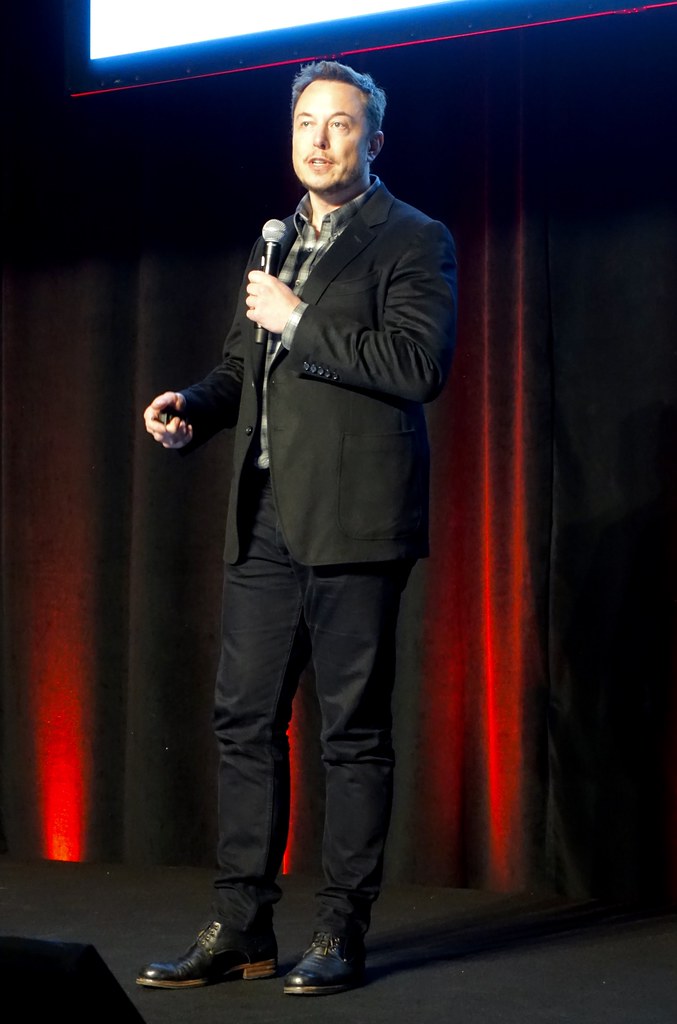
7. **Nurture a Climate of Creativity**
Innovation is unequivocally the lifeblood of any thriving business in today’s fiercely competitive landscape. To consistently stay ahead, organizations must cultivate an environment where creativity isn’t just encouraged, but becomes an ingrained part of the operational DNA. Leaders who champion this ethos, such as Elon Musk and Steve Jobs, understand that groundbreaking products and services emerge from a culture unafraid to explore new ideas and challenge existing paradigms.
Elon Musk’s approach underscores the profound importance of embracing failure as an integral component of the innovation process. His appreciation of failure as a way to innovate proves that a culture that encourages risk-taking and experimentation also promotes growth. By effectively eliminating the fear of failure, leaders can create an atmosphere where employees feel empowered to try new things without the paralyzing dread of negative repercussions, thereby sparking a continuous cycle of creativity and problem-solving.
Similarly, Steve Jobs, through his visionary leadership at Apple, passionately believed in continually pushing boundaries and discovering novel ideas. He famously fostered a culture rooted in his ‘Think Different’ mantra, which explicitly empowered employees to take strategic risks in pursuit of game-changing concepts. This philosophy was instrumental in the development of revolutionary products like the iPhone and iPad, solidifying Apple’s position at the forefront of technological innovation and market leadership.
For any business leader, the lesson from these titans is clear: true progress often lies beyond the comfort zone. By actively nurturing a climate that values curiosity, embraces experimentation, and views setbacks as learning opportunities, organizations can unlock their full creative potential. This not only leads to breakthroughs in product development and service offerings but also fosters a dynamic workforce eager to contribute to the company’s sustained success.
Read more about: Beyond the Gleam: Unpacking the Enduring Allure of Classic Cars and the Resurgence of Automotive Heritage Shows
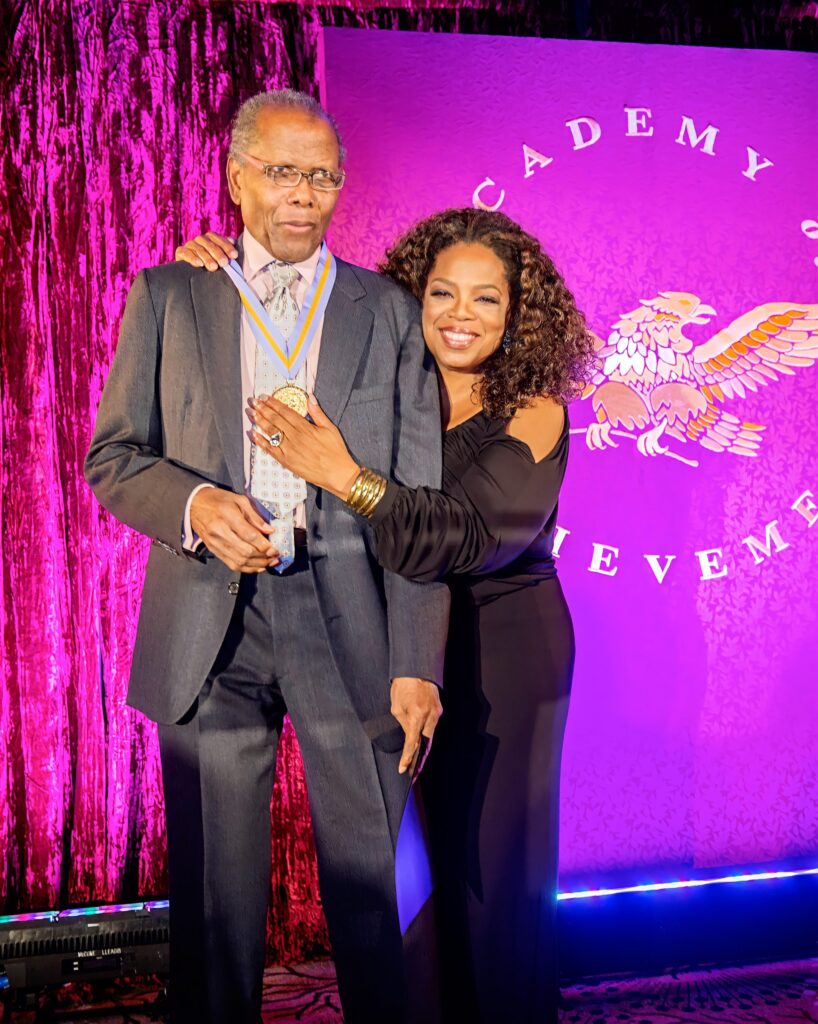
8. **Express Clearly and Convincingly**
Effective verbal skills are more than just a managerial asset; they are a fundamental requirement for transforming abstract visions into tangible realities. The ability to express one’s views in a manner that others can readily understand and internalize is paramount for inspiring teams, aligning efforts, and driving collective progress. Leaders like Oprah Winfrey and Satya Nadella have masterfully demonstrated how compelling communication can catalyze significant change and rally people around a shared purpose.
Oprah Winfrey’s career stands as a testament to the power of clear and convincing communication. Her profound ability to connect with audiences and articulate her vision has made her a leader in every venture associated with her name. She exemplifies how successfully conveying a vision means expressing your views in words other people would understand, motivating them to evolve into part and parcel of the manifesto as long as they aim to achieve your dreams. This capacity to inspire and galvanize is a hallmark of truly effective leadership.
Satya Nadella, as CEO of Microsoft, similarly insists that a leader must articulate an appealing vision that clearly matches the corporation’s goals. His leadership has reinstated Microsoft with a clear vision for the future, particularly in cloud computing and artificial intelligence. Through clear and consistent communication, everyone in the organization gains a precise understanding of the direction, enabling them to work cohesively towards common objectives and ensuring that the entire enterprise moves forward in unison.
Ultimately, leaders must acquire the ability to communicate their message in an inspirational manner that sparks passion and brings about positive change among team members. When a vision is articulated with clarity and conviction, it becomes a unifying force, transforming individual efforts into a powerful, collective drive toward achieving ambitious business outcomes. This ability to articulate complex strategies simply and compellingly is a cornerstone of impactful leadership.
Read more about: Behind the Glitz: 14 A-Listers Who Flat-Out Refused to Share the Screen (And What Went Down)
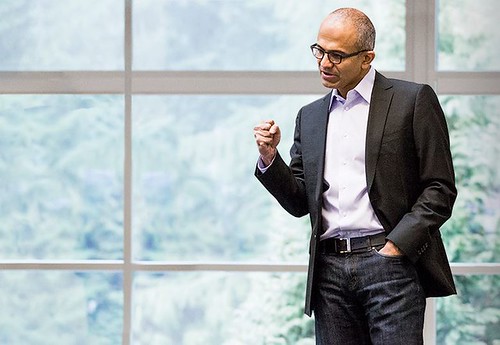
9. **Lead with Empathy**
Empathetic leadership has emerged as a critical attribute for cultivating high-performing and resilient teams in the modern business era. This approach extends beyond mere understanding; it involves comprehending situations from individual team members’ perspectives while genuinely acknowledging and valuing their feelings. Satya Nadella’s transformative work at Microsoft and Arne Sorenson’s stewardship of Marriott International vividly illustrate the profound impact of leading with heart and compassion.
Satya Nadella has pioneered empathetic leadership, demonstrating how this strategy creates an environment where staff members feel seen, appreciated, and inherently included. This commitment to understanding individual experiences fosters psychological safety and strengthens team cohesion. Nadella’s philosophy proves that empathy in leadership does not imply that standards or accountability should be compromised; rather, it is about guiding with heart and compassion, improving team output and, most importantly, staff commitment.
Arne Sorenson of Marriott International exemplified this quality, particularly during challenging times. Leaders like him are sensitive to the pulse of the employees and customers, working to address their needs and concerns proactively. His empathetic approach during crises, such as the COVID-19 pandemic, really helped maintain the great organizational culture and customer relationships, showcasing how a compassionate stance can fortify a company’s foundation and loyalty during adversity.
Ultimately, leading with empathy cultivates a powerful sense of trust and loyalty within an organization. It fosters an environment where employees feel truly valued, which in turn enhances engagement, boosts productivity, and reduces turnover. By prioritizing the human element, empathetic leaders build stronger teams, foster deeper client relationships, and ensure that their businesses are not only successful but also genuinely supportive and inclusive workplaces.
Read more about: Behind the Mic: 8 Major Stars Who Steered Clear of Iconic Charity Singles (and Why!)

10. **Prioritize People and Empower Teams**
Any successful business organization is fundamentally powered by the strength and dedication of its team. Recognizing this, influential leaders such as Richard Branson highlight that true success goes beyond merely gathering a group of talented and competent individuals; it critically involves allowing them autonomy, which in turn fosters total accountability. This trust empowers employees, elevates their morale, and significantly catalyzes creativity, building a scenery that encourages individuals to be aware of the company’s achievements and do their best.
Richard Branson famously encapsulates this philosophy with his enduring belief: If you look after your people, they will look after your customers. And that generates profit. This profound insight underscores that prioritizing employee well-being and engagement is not just a benevolent gesture but a shrewd business strategy. Creating a nurturing environment where staff feel valued and supported naturally translates into higher job satisfaction and superior customer service, directly impacting the bottom line.
Indra Nooyi, as the former CEO of PepsiCo, further exemplified the power of empowering teams. She consistently empowered her teams with respect to decision-making and deliverable ownership. This approach instilled immense confidence within her workforce, driving innovation and productivity across the global enterprise. Nooyi’s way of leading through a sense of ownership and accountability helped PepsiCo sail through major market changes and emerge stronger, demonstrating that distributed authority can lead to greater organizational agility.
By entrusting employees with significant responsibility and the authority to act, leaders effectively unlock latent potential and foster a sense of collective ownership. This strategy not only enhances individual capabilities but also builds a more resilient and dynamic organization. When teams feel genuinely empowered, they become proactive problem-solvers and passionate contributors, directly fueling the company’s sustained growth and long-term success.
Read more about: The Designer’s ‘Shame’ or Strategic Brilliance? Unpacking 9 Aesthetic Choices That Masterfully Slash Production Costs
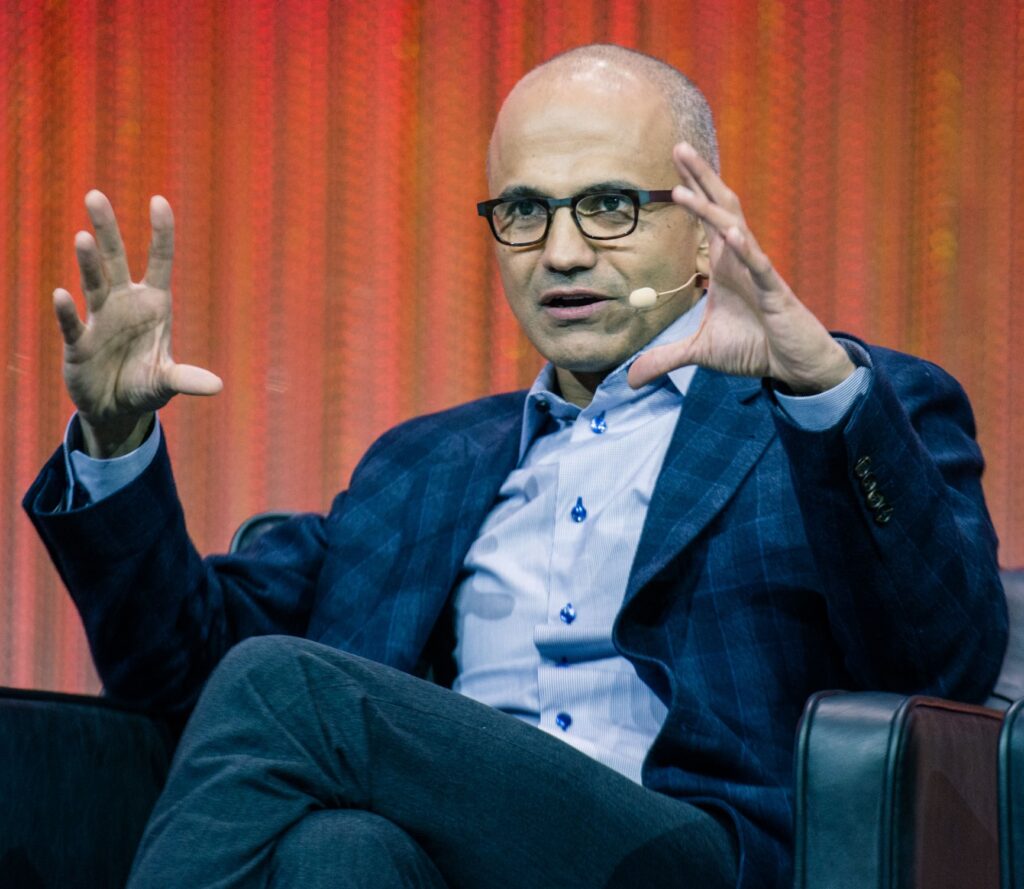
11. **Be a Lifelong Learner & Cultivate a Growth Mindset**
In today’s perpetually shifting business landscape, continuous learning is not merely an advantage; it is an absolute necessity for effective leadership. Leaders must be equipped with direction, which can only be achieved through a commitment to lifelong learning, constantly updating their knowledge and skills. Visionaries like Warren Buffett and Satya Nadella have consistently demonstrated that a voracious appetite for learning is paramount to navigating complexity and driving sustained success.
Warren Buffett stands as an enduring example of this principle, with his strong determination and commitment to constant learning. Buffett’s disciplined approach to deep research and understanding, even when others rush, provides invaluable insights into market dynamics and investment opportunities. By following new trends, technologies, and methodologies, leaders can make informed decisions with an eye on their organizations, ensuring their strategies remain relevant and robust in an unpredictable market.
Satya Nadella’s leadership at Microsoft further highlights the transformative power of cultivating a growth mindset throughout an organization. Under Nadella, the focus on learning and development has been the impetus behind Microsoft’s cultural transformation and technological advances. This mindset encourages employees at all levels to embrace challenges, learn from failures, and continuously improve, fostering an environment where innovation and excellence become commonplace, propelling the company forward.
For business leaders, the message is unequivocal: embrace humility and acknowledge that there is always more to learn. Actively seeking new knowledge, staying abreast of industry developments, and fostering a culture of continuous intellectual curiosity within your team will equip your organization with the agility and foresight needed to adapt, innovate, and thrive amidst constant change. This commitment ensures that both leaders and their teams remain at the cutting edge of their fields.
Read more about: Unlock Your Potential: The Hottest Lifelong Learning Podcasts You Need in 2025
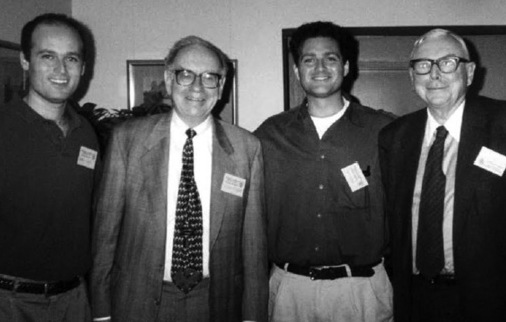
12. **Integrity and Transparency Above All**
Integrity forms the bedrock of trusting leadership, establishing a foundation upon which enduring success and credibility are built. Leaders who consistently prioritize ethical principles and transparency, such as Warren Buffett, Indra Nooyi, and Marc Benioff, not only solidify trust within their organizations but also construct a permanent legacy that resonates far beyond their tenure. This unwavering commitment to honesty defines true leadership.
Warren Buffett is renowned for his forthright and open communication, a style that exemplifies how leadership based on honesty gives birth to trust and credibility. His candour and value-based business strategy have earned him the profound confidence of investors and immense respect from fellow professionals worldwide. This openness and an atmosphere of trust are fostered when leaders are transparent; otherwise, effective leadership cannot be expected, as it undermines the very fabric of organizational cohesion.
Indra Nooyi consistently put ethical principles above everything else, with transparency as a guiding idea throughout her leadership at PepsiCo. Her commitment not only cemented trust within her organization but also built a permanent legacy of ethical conduct. This steadfast dedication to high moral standards within leadership fosters an environment of transparency and accountability needed so that organizations can survive through time, respecting their place in business society and maintaining a sterling reputation.
Marc Benioff, the CEO of Salesforce, further illustrates the critical significance of being socially and ethically responsible. His advocacy for a more equitable and inclusive business model and his commitment to philanthropy showcase how businesses can thrive while contributing positively to society. This holistic approach, integrating social responsibility with core business practices, not only enhances brand reputation but also deepens employee loyalty and customer trust, ensuring long-term sustainability and positive impact.
Read more about: When Home Becomes a Hotel: The Heart-Wrenching Realities of Family Rent Conflicts and Financial Betrayal
These twelve profound lessons from celebrity CEOs underscore a fundamental truth: great leadership transcends industry boundaries. Whether commanding a football field, a music empire, a film set, or a tech giant, the core principles of strategic vision, adaptability, empathy, and integrity remain universally applicable. These insights are not just aspirational ideals but actionable blueprints for any entrepreneur or business leader aspiring to leave a lasting mark. Embracing these lessons means committing to continuous growth, fostering dynamic teams, and leading with an unwavering sense of purpose and authenticity. As you integrate these powerful strategies into your own leadership journey, remember that the pursuit of excellence is an ongoing endeavor, constantly refined by experience, wisdom, and an unwavering dedication to making a meaningful impact.




